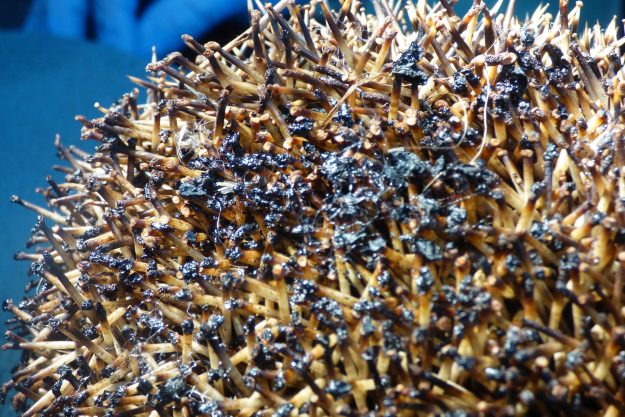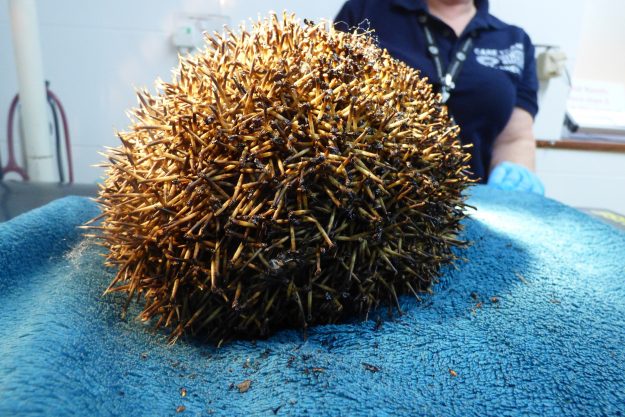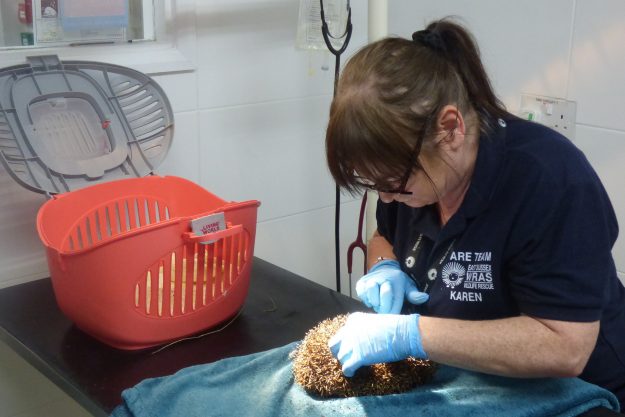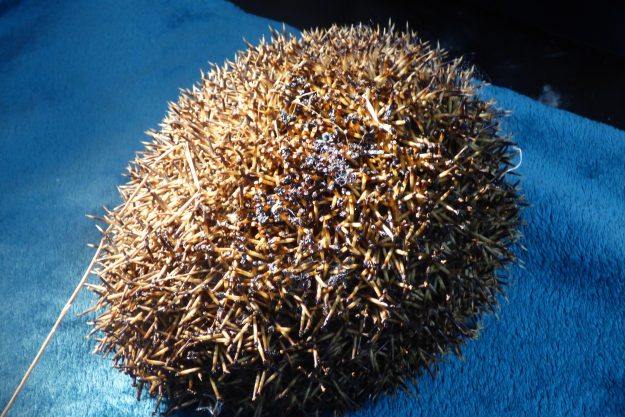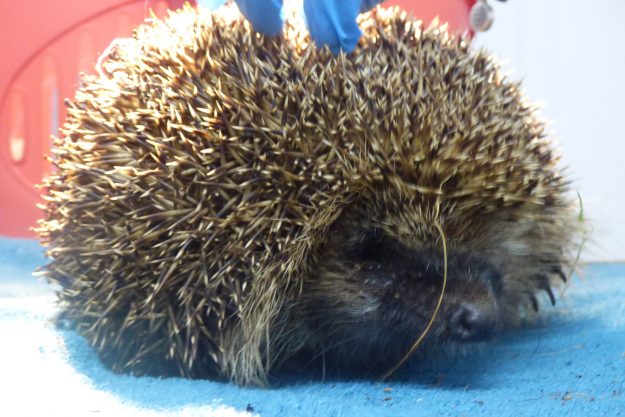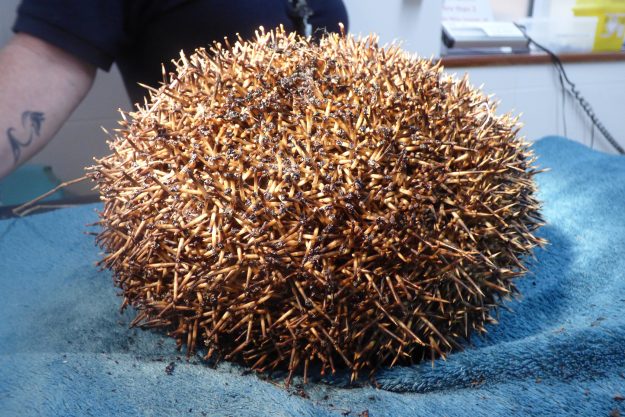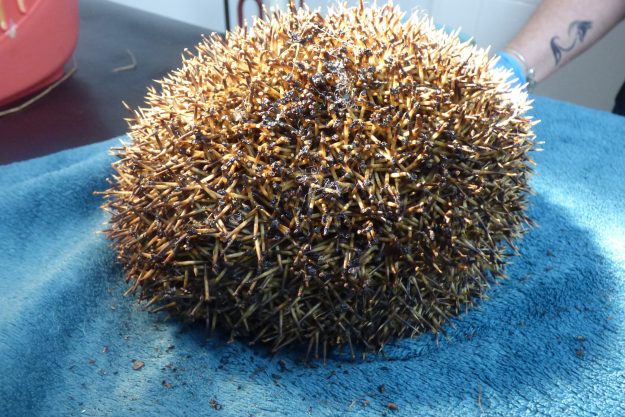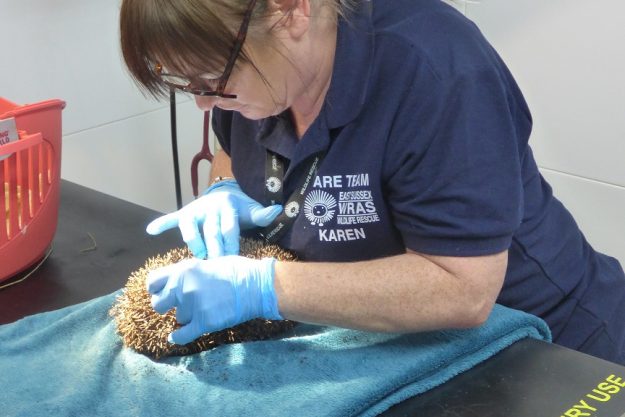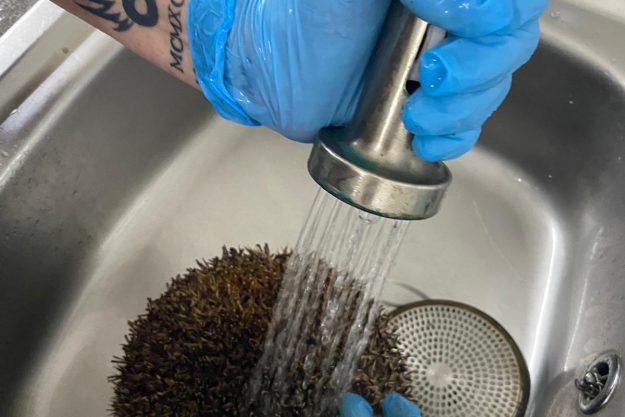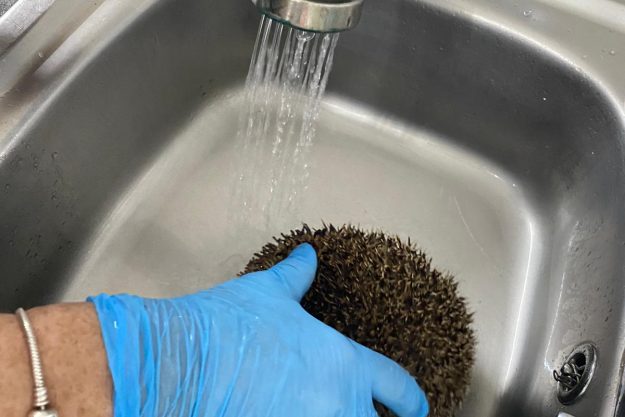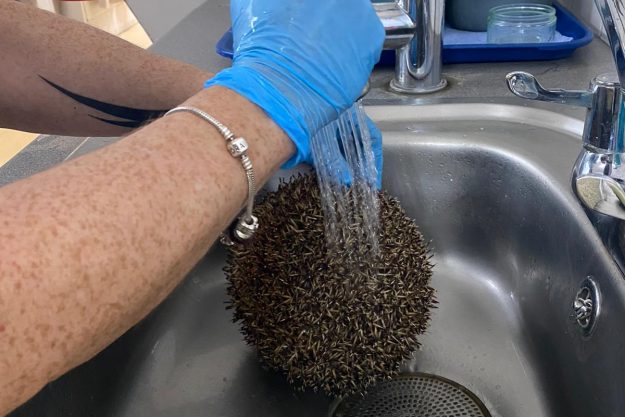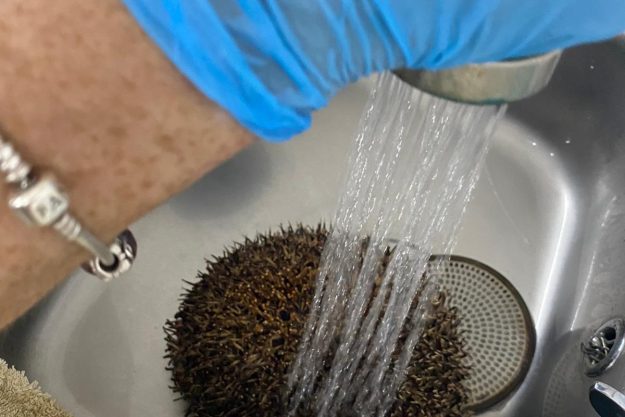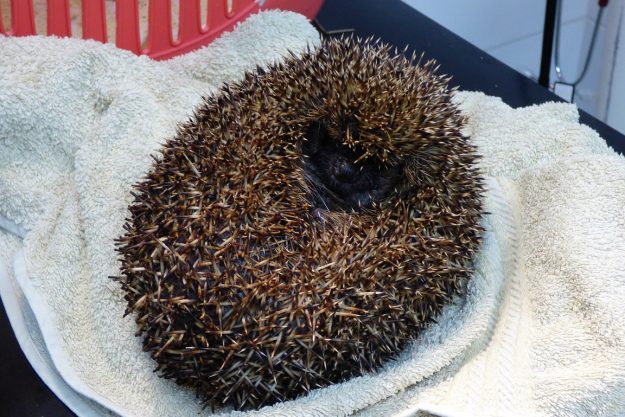A Sussex animal charity is urging people to take care during the Autumn and Winter bonfire season and to follow their top ten tips for helping wildlife, and especially keeping hedgehogs, safe.
East Sussex Wildlife Rescue & Ambulance Service (WRAS) takes in over 600 hedgehogs a year and at this time of year they will be starting to look for and develop hibernation homes to sleep for the winter. Bonfires make perfect places for hedgehogs to hide and sleep, but not necessarily in safety. "Hedgehog numbers are on the decline and we need to help them out as much as possible and this is a simple and easy way to do so" explained WRAS founder Trevor Weeks MBE.
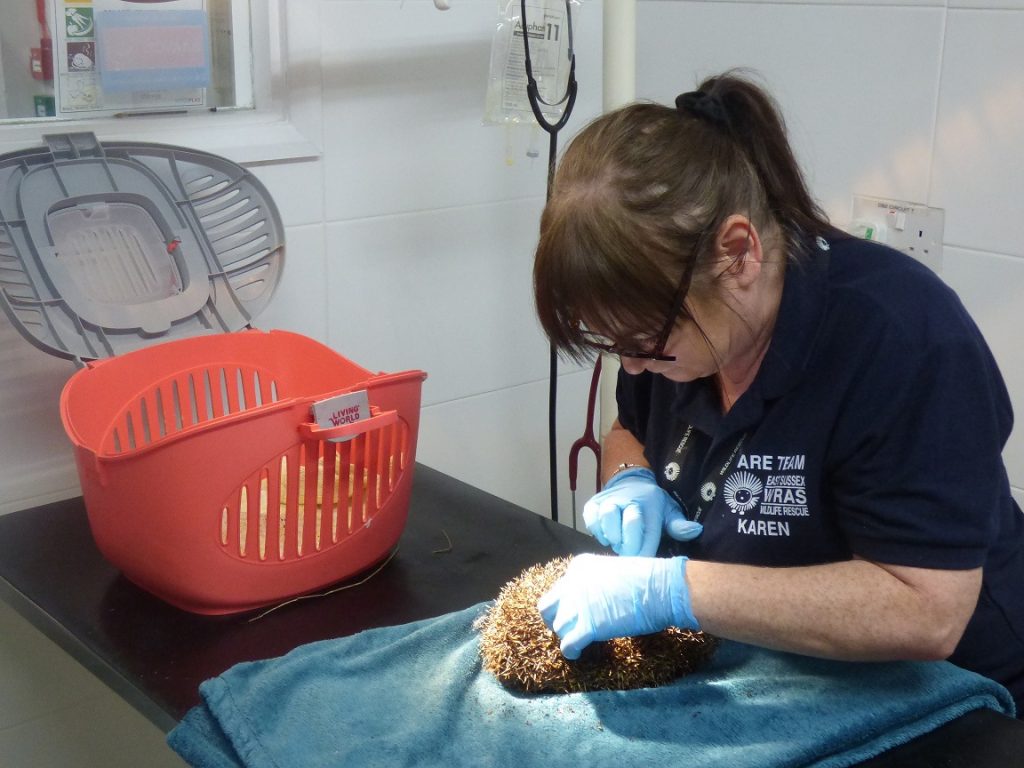
Bonfires and fireworks can be great fun but can also very upsettingly spoilt when wildlife casualties crawl out burnt or on fire. "Not all wildlife gets out alive, and many are thought to die unseen. The smell is normally the first thing people notice. If people follow our top ten tips it will reduce the risk to wildlife and help keep bonfire events safe" said Trevor.
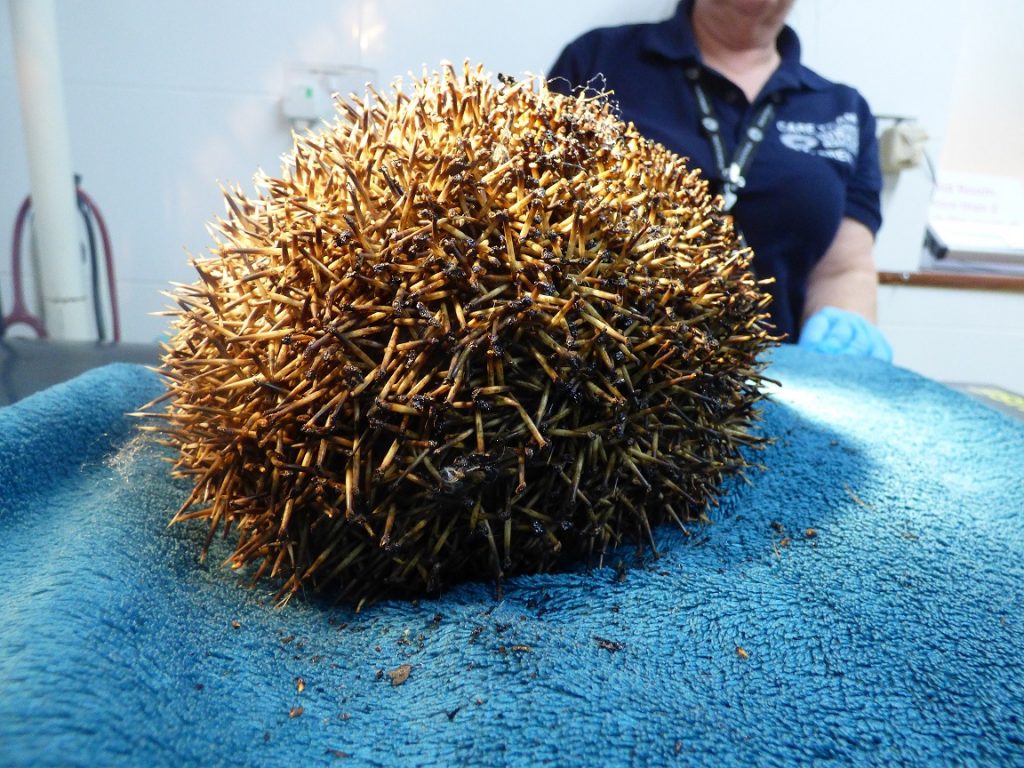
WRAS's Top Ten Tips:
- Smaller bonfires: Re-site the entire bonfire pile before being lit where possible or use broom handles to lift the bonfire up to check for wildlife sleeping inside before lighting the fire. Use torches to check underneath and listen carefully for any signs of life.
- Larger bonfires: Erect a mesh fence with an overhang round the bonfire to avoid small wild mammals getting inside.
- Light the bonfire at one side rather than all round so that any animals or birds inside have a chance to escape.
- Move bird feeders and other food left out on the ground for wildlife away from the bonfire site for at least a week before building a bonfire.
- Light bonfires away from over hanging trees and bushes.
- Avoid using fireworks or use no-noise fireworks to help keep the impact on wildlife as low as possible.
- Avoid firing fireworks or bangers around trees, bushes, ponds and lakes.
- Place a hedgehog house or simple small hutch with clean and fresh straw, hay and hand shredded paper and dried leaves to provide an alternative home for any animals which might be visiting your garden.
- Have a bucket of water available in case you need to put out the fire or an animal on fire.
- Know who to call if you find an injured wildlife casualty.

